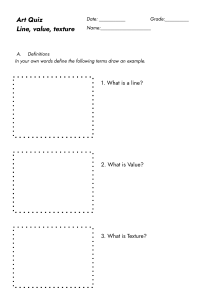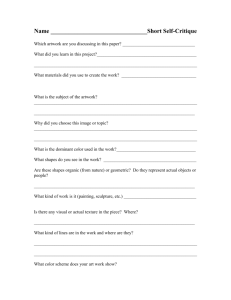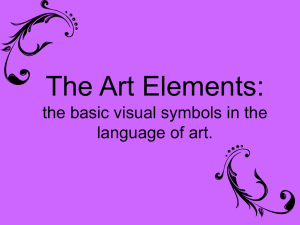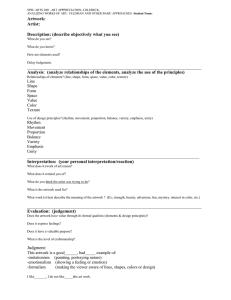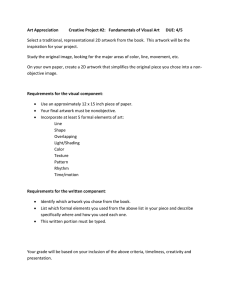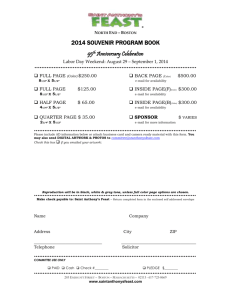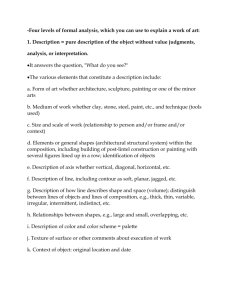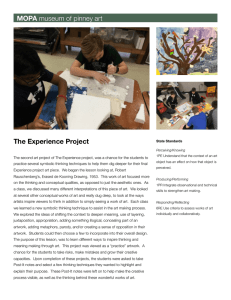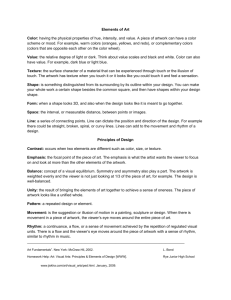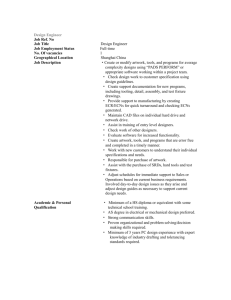Elements & Principles Quiz
advertisement
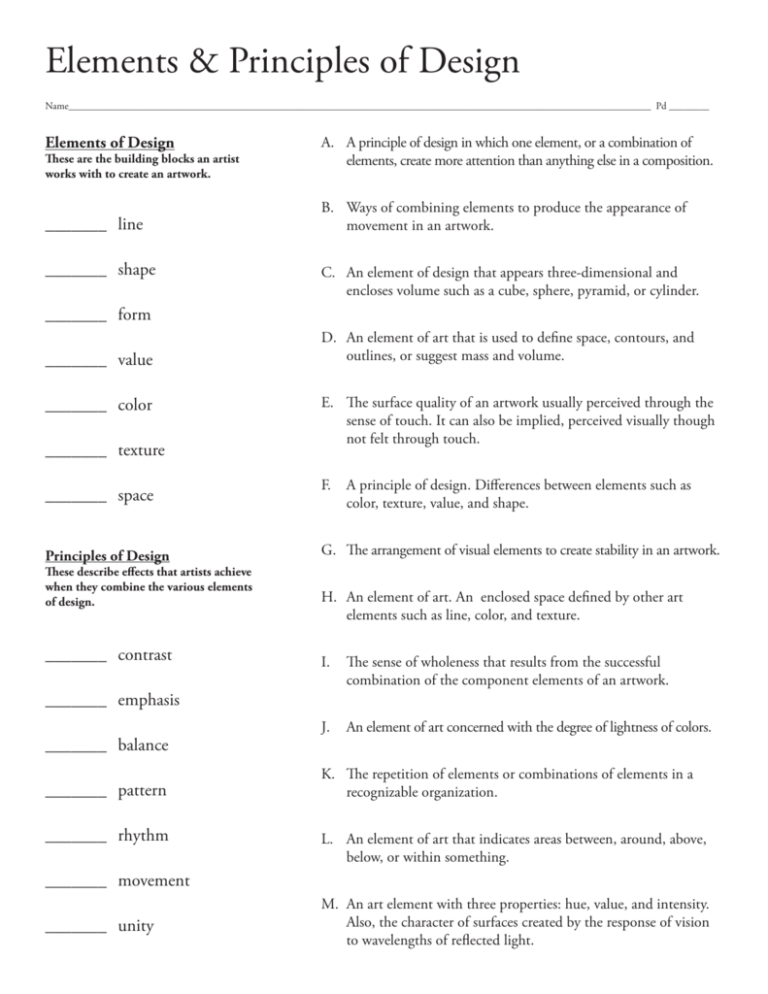
Elements & Principles of Design Name____________________________________________________________________________________________________________________ Pd ________ Elements of Design These are the building blocks an artist works with to create an artwork. _______ line _______ shape A. A principle of design in which one element, or a combination of elements, create more attention than anything else in a composition. B. Ways of combining elements to produce the appearance of movement in an artwork. C. An element of design that appears three-dimensional and encloses volume such as a cube, sphere, pyramid, or cylinder. _______ form _______ value _______ color _______ texture D. An element of art that is used to define space, contours, and outlines, or suggest mass and volume. E. The surface quality of an artwork usually perceived through the sense of touch. It can also be implied, perceived visually though not felt through touch. _______ space F. A principle of design. Differences between elements such as color, texture, value, and shape. Principles of Design G. The arrangement of visual elements to create stability in an artwork. These describe effects that artists achieve when they combine the various elements of design. _______ contrast _______ emphasis _______ balance _______ pattern _______ rhythm H. An element of art. An enclosed space defined by other art elements such as line, color, and texture. I. The sense of wholeness that results from the successful combination of the component elements of an artwork. J. An element of art concerned with the degree of lightness of colors. K. The repetition of elements or combinations of elements in a recognizable organization. L. An element of art that indicates areas between, around, above, below, or within something. _______ movement _______ unity M. An art element with three properties: hue, value, and intensity. Also, the character of surfaces created by the response of vision to wavelengths of reflected light.
